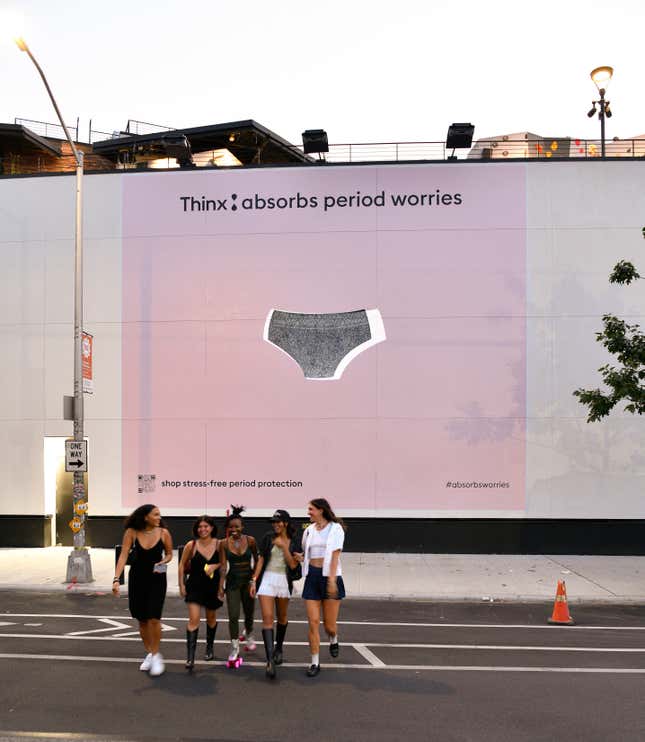The Thinx Period Lawsuit Gave Customers $21 Each and a Lot of Unanswered Questions
Customers with fertility and other health issues are pissed about only getting $21 in compensation amid allegations that Thinx products contain toxic chemicals.
HealthIn Depth

In 2017, S, a Thinx customer speaking to Jezebel anonymously to protect her medical privacy, bought her first set of the brand’s signature period underwear. She’d just had a copper IUD inserted, resulting in a heavier flow at the beginning of her period, and Thinx’s products seemed ideal for preventing “embarrassing” leaks. “They were really comfortable, and it seemed really revolutionary,” she said. “And they marketed as not having any harmful chemicals.” Thinx has specifically advertised itself as “organic, sustainable, and non-toxic.”
Then, after using Thinx for years, she saw the first headlines detailing possible risks associated with the products, ultimately leading to the class action lawsuit that the company settled this week. In 2020, an investigation by Sierra magazine revealed that Thinx’s mainline underwear contained 3,624 parts per million of PFAS, or per- and polyfluoroalkyl substances, which are linked to fertility problems and certain cancers among other health risks. Thinx’s popular BTWN briefs contained 2,053 parts per million of PFAs in the crotch.
PFAS are also known as “forever chemicals,” as they’re nonstick and stain-resistant and don’t break down in the environment. They’re found in some cookware and clothing, and the EPA and other states have been cracking down on their usage, with New York state set to ban them by the end of this year. Per research from the Environmental Working Group, the vaginal area is especially vulnerable to chemical absorption and PFAS exposure—it’s the equivalent of oral ingestion.
One California lawsuit filed against Thinx in 2020 alleged that some customers developed irregular menstrual cycles, urinary tract and yeast infections, and reported fertility problems after wearing Thinx underwear. The same lawsuit alleged that Thinx products contained the chemical Agion, an antimicrobial odor-reducing agent derived from silver and copper nanoparticles.
Dr. Catherine Bulka, an assistant professor at the University of Southern Florida’s school of public health, also notes that PFAS can cause immunotoxicity, which can “make individuals more susceptible to infectious disease” by suppressing the immune system, making vaccines less effective. “There’s really just a wide range of risks, whether it’s cancer risk or lower birth weight for babies, and the research on absorption of chemicals through the vagina remains limited,” Bulka told Jezebel.
-

-

-

-

-

-

-

-

-

-

-

-

-

-

-

-

-

-

-

-

-

-

-

-

-

-

-

-

-

-

-

-

-

-

-

-

-

-

-

-









































